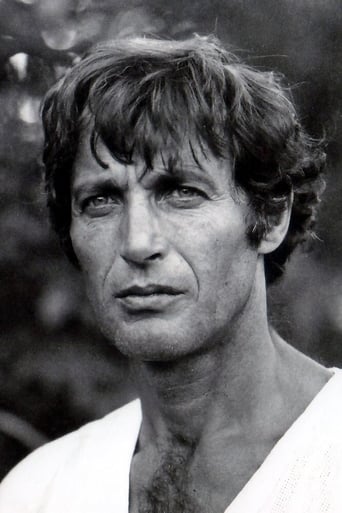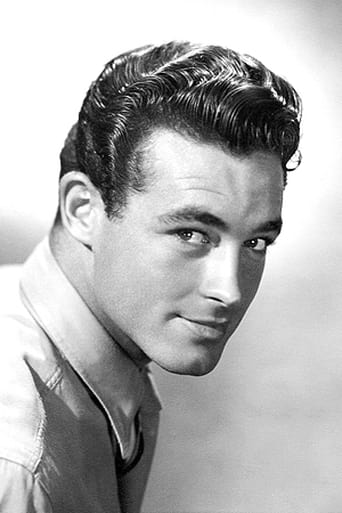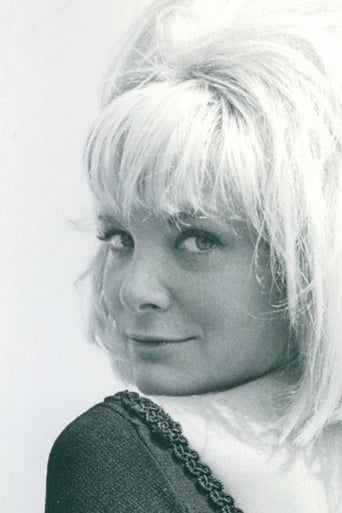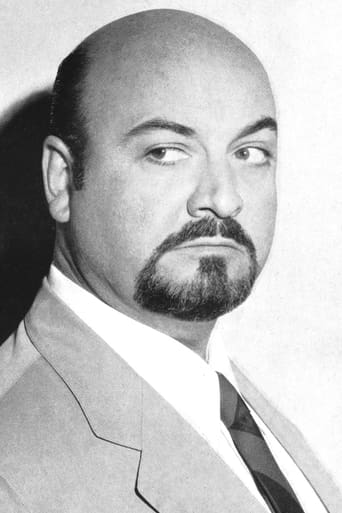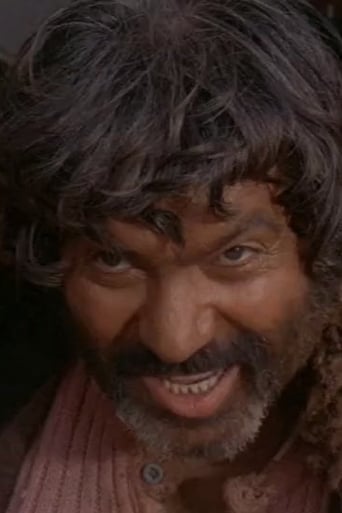Wordiezett
So much average
Moustroll
Good movie but grossly overrated
Tedfoldol
everything you have heard about this movie is true.
Portia Hilton
Blistering performances.
Leofwine_draca
SON OF DJANGO is perhaps one of the most notable of all DJANGO rip-offs following on from the success of the Franco Nero vehicle. This one is also called RETURN OF DJANGO somewhat oddly, given that the main character is Django's offspring, come to find out who killed his deceased father. There's the usual debt of inspiration to A FISTFUL OF DOLLARS, as the setting is a small western town split by two warring sides. Django's kid is in the mix and soon takes up arms himself.This is pretty much par for the course for the spaghetti western genre, quite cheap-looking in places. The writing lets the film down at times, providing ordinary throughout and letting the audience hang at the confuddled climax. Gabriele Tinti, that familiar star of Italian cinema in the 1970s, is the erstwhile hero, supported by a scene-stealing Guy Madison as the helpful town priest.
ccmiller1492
"Son of Django" amounts to nothing more than the title character's vendetta against what approximates a "Mafia don" in the old west...... It's a routine plot with Jeff Tracy, Django's son avenging his death. I never liked our American westerns much because they mostly seemed so unconvincing...the heroes (like Randolph Scott and John Wayne) and even the villains are way too clean and sterilized for the times, and the killings are antiseptically bloodless for some odd reason. I now watch them just for the plots and the settings, which are superior to the spaghetti westerns.As sub-par as this one is, it's faults are mainly due to the writers and director. Gabriele Tinti cannot be blamed for his lack of any credible dialog. His good-looking, masculine face and weathered,beard-shadowed jaw perfectly resembles those western heroes customarily pictured on American pulp paperbacks. He's long, lean and could be mean, but he's got a lot of soul and some morality, too. My favorite sequence is when he intervenes to stop a brutal and seemingly endless gang beating of an innocent man right in the middle of the town, in front of the victim's wife. It's hard to believe that Tinti, who looks like the perfect, slightly grubby epitome of the western hero was stuck for most of his career as a supporting character in "Emmanuelle" films. What a waste!I give this film a 7 out of 10 just because of Tinti's magnificent presence which illustrates the ideal of the American western hero. With a better script worthy of him, this could have been a standout and a new direction for his body of work.
MARIO GAUCI
I know there were scores of films revolving around the character of Django (though, to be fair, many of these were considered as such merely in export versions), introduced in Sergio Corbucci's masterful Spaghetti Western with Franco Nero (and to which an official sequel was only made some 20 years later!). As far as I know, I'd previously come upon just one such effort – DJANGO SHOOTS FIRST (1966), which was okay – and two more – DJANGO, KILL...IF YOU LIVE, SHOOT! (1967) and DEATH SENTENCE (1968), both excellent if unusual – which are known as "Django" titles merely outside their native country.This, then, is the third 'official' Django film I've watched: unfortunately, it turned out to be one of the least rewarding Spaghetti Westerns out there! As can be surmised, the narrative opens with the cowardly Jesse James-like assassination of the popular character, which leaves his kid son (who witnessed it) to avenge him as a grown-up – now played by Gabriele Tinti (later spouse of Laura "Black Emanuelle" Gemser, an extensive collection of whose dubious work I should be laying my hands on in the near future!). Typically, the Western town involved is divided between two warring factions; conveniently, both had been former associates of Django…as is the current preacher (top-billed Guy Madison – it was customary to engage the services of erstwhile American stars for this particular brand of "Euro" oater)!The film features a reasonable amount of action throughout, but the execution is exceedingly inept (for instance, a number of shoot-outs occur during the first 10 minutes – as if the director mistrusted the attention span of possible viewers – but, given that we don't know who is getting shot by whom or why, it's all very confusing!). What, then, of his apparent need to have each and every bad guy make such a big moment of his death scene, irrespective of whether he had figured to some extent in the proceedings or not?! Also involved are a French card-sharp (with whom Tinti had shared a prison cell) and his gunfighter companion – who subsequently join the ranks of one of the rival outfits, while the brooding Django Jr. prefers to keep to himself. Female presences of any consequence are limited to a saloon hostess and the wife of a landowner whom one of the clan leaders kills in a duel (she herself unwittingly falls victim to the same man soon after when confronted by her in his room).For what it's worth, the film's climax strives to be meaningful but only manages to be muddled – thus deeply unsatisfactory! Characteristically, then, Piero Umiliani's score also emerges as a sub-par effort overall (despite a catchy main theme).
Steve Nyland (Squonkamatic)
Maybe I just got out of the wrong side of the bed this morning, but this movie sucks. Lead Gabriele Tinti is wooden, bland, lacking in charisma and looks stupid in his white fur jacket. Usually Spaghetti Westerns have long, taut pauses in dialog where actors sort of glare at each other. Tinti's eyes seem glazed over in comparison, as though he was bored and just couldn't think of a one-liner worth opening his mouth for. He walks into rooms, turns around, faces the camera, nods, and walks out. Most of the time he looks like he is sulking; At least Jack Palance would have the excuse of being hung over.I do not like Gabriele Tinti. He has never done anything to me personally of course, and while married to Euro sex symbol Laura Gemser became one of the fixtures of Euro Sleaze. He plays a sadistic creep in BLACK COBRA WOMAN and maybe it just left an impression. In any rate he is not suited for a Spaghetti Western anti-hero. But this movie was cheaply made as possible and perhaps he was all they could afford. Costumes are mish-mashes of department store threads combined with movie prop room cowboy vests. Even the ladies seem to be clad in hand-me-downs from more expensive productions that don't seem to fit them right, and the song one of them warbles for the camera is completely out of place in this production. Then again everything feels out of place; Supporting actors stand around looking like they are waiting for stage directions and the camera lingers on empty space in the canvas of the widescreen picture waiting for something to fill it. More often than not, nothing does.The story is supposedly about Tinti in search of the killer of his father, who was named Django. The only reason to have this plot element was to tie the film to Sergio Corbucci's superior DJANGO from 1966, and the only reason to do that is because nobody would have otherwise cared about this film, and correctly so. If the combined efforts of Guy Madison, Daniele Vargas, writer Tito Capri and composer Piero Umiliani (who would later recycle his musical score for at least 2 other films, both better than this, and who could blame him) cannot add more than a momentary spark to a Spaghetti Western, you know you are in trouble.There's another name in the credits, one Demofilo Fidani. More commonly known by his Americanized moniker Miles Deem, Fidani is a name that Spaghetti Western aficionados have come to associate with cheapness for the sake of cheapness. Between 1970 and 1972 or so he directed a dozen of these things, each one cheaper than the previous, and most of them about as interesting as your average Bazooka Joe chewing gum comic. Here he was in charge of the set designs and chose a minimalist approach that sadly leaves a few too many blank spaces for the imagination to fill in. Which mind you isn't necessarily a bad method given the film's look is approached with a certain sense of style. This movie's was not. It is an assembly of clichés and formula solutions strung together with a modestly engaging musical score, costumed in unattractive drab trappings & populated by actors who not only look like they don't give a damn but don't inspire the audience to give a damn. Even the pretty wife of the mistreated down on his luck dork rancher was only in the film to be abused on-camera as if to provide some sort of exploitation angle. You just don't care what happens to her so long as there is some sort of erotic thrill attached. And her sudden departure is the film's sole moment of surprise, yet does nothing to break the stilted, hesitant dialog, the uninspired camera-work, the clueless mugging of the supporting cast, and the inexcusably out of synch dubbing.I love low budget Spaghetti, but this movie quite frankly is way subpar. The only redeeming quality I can see is a sort of odd visual tension due to when the film was made. 1966 thru 1968 were probably the most interesting years of the Spaghetti boom, the pre- ONCE UPON A TIME IN THE WEST period where the lesser Italian directors were trying to find their voice in the form that Leone & Corbucci invented. This effort straddles the divide between the straightforward Euro Western approach and the Spaghetti "style over substance" method. The basic story, direction and cinematography here is Euro Western, only the content's ultra-violent depravity speaks for what would eventually become the Spaghetti approach.What's missing is the style. The film has no sense of identity, it doesn't know whether it wants to be a cheap knockoff or a languid horse opera. A year after this was made, ONCE UPON A TIME IN THE WEST proved that the Italians could make a Western on the same level of craft & scale as that of John Ford or Peckinpah. By contrast, this film is a slacker, trying nothing new, taking no chances, not even having the decency to provide us a lead star worth rooting for. You sort of watch the action in muted anticipation, hoping that Guy Madison or one of the sleazy villains will do something interesting. Only they don't.3/10
